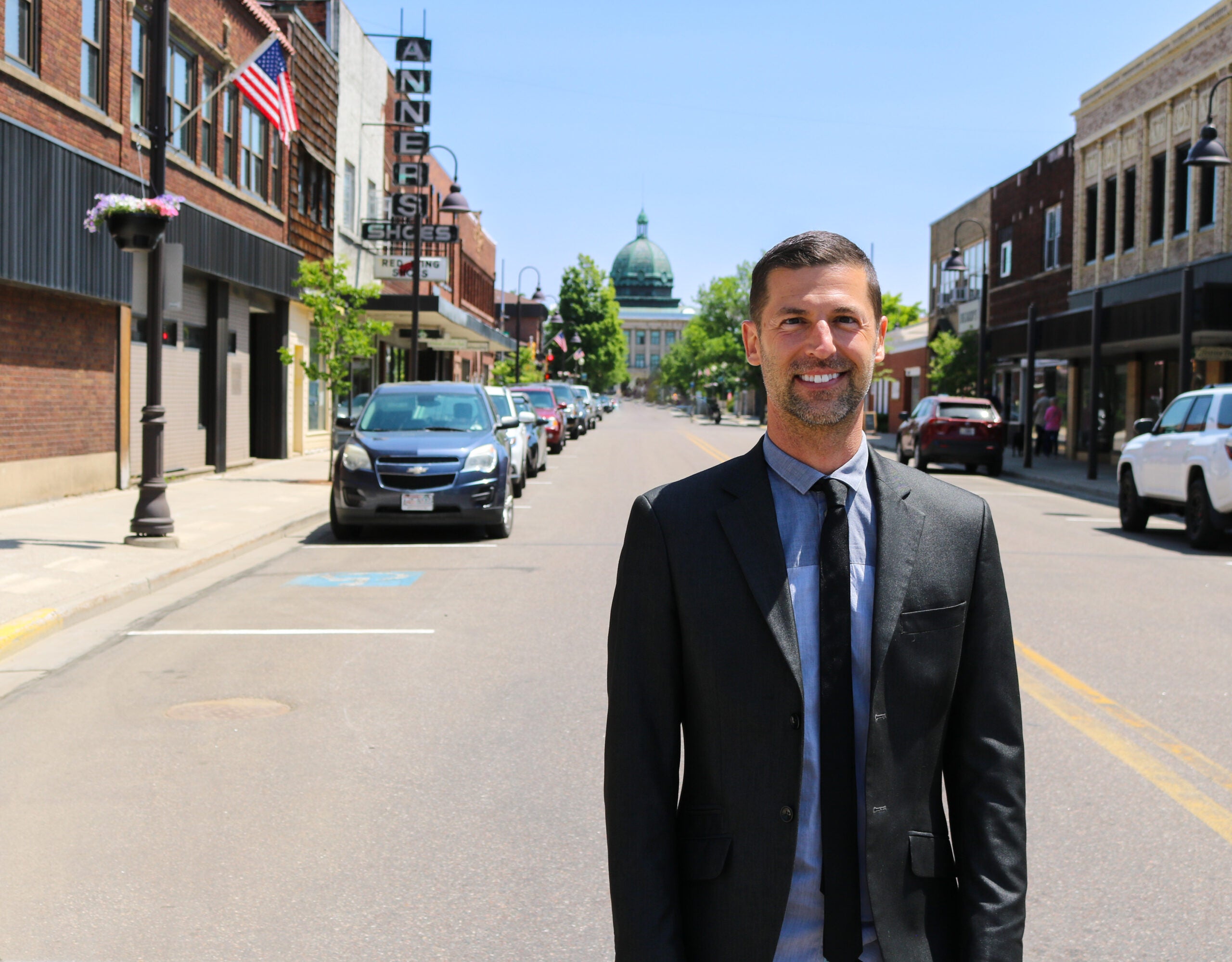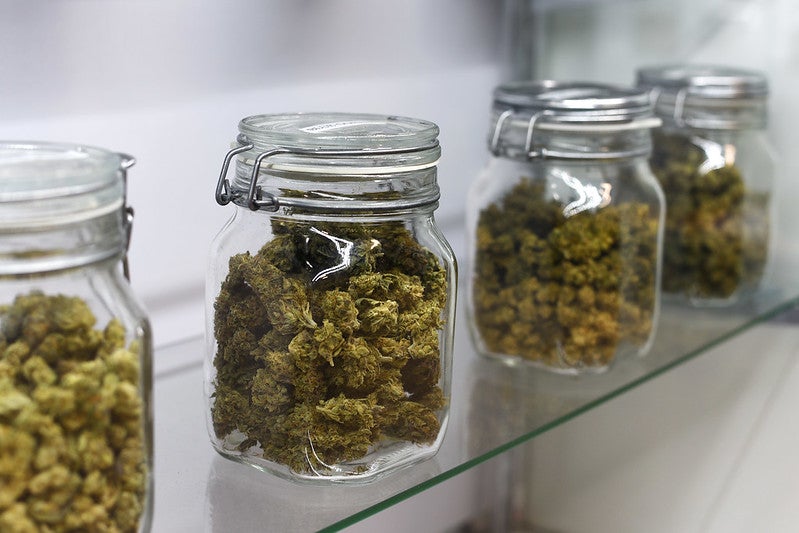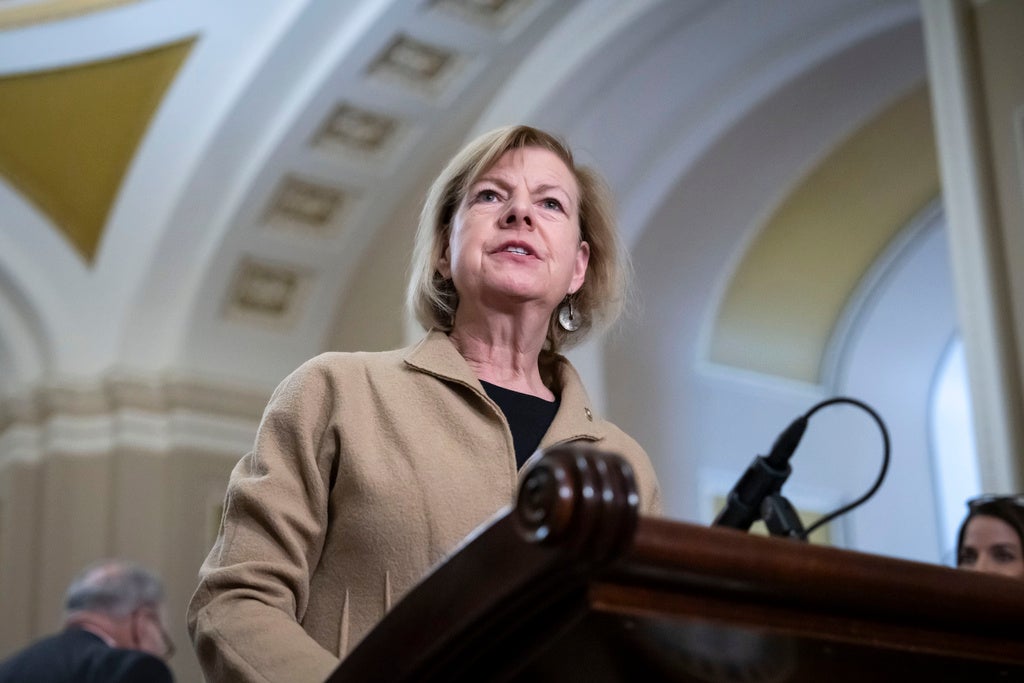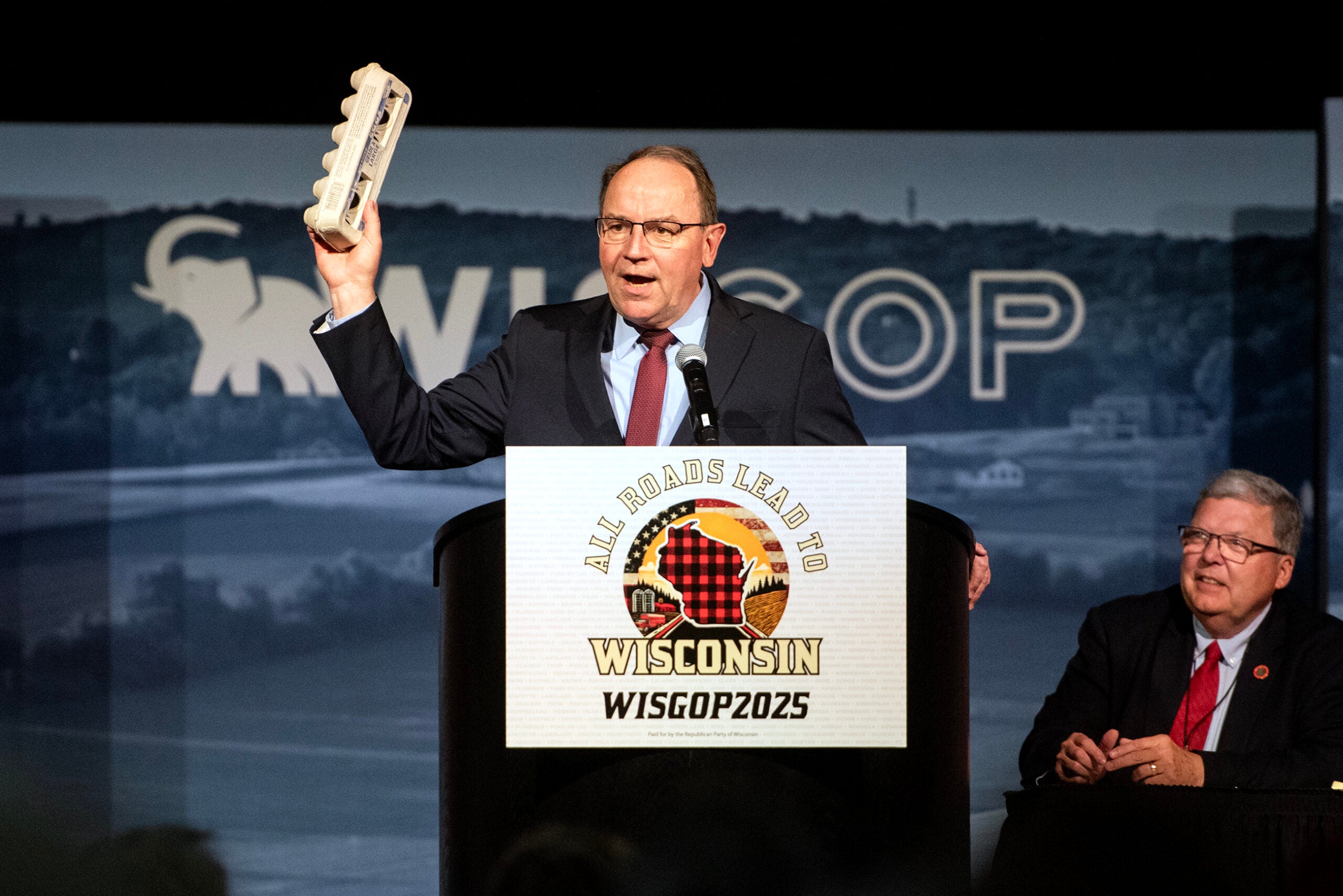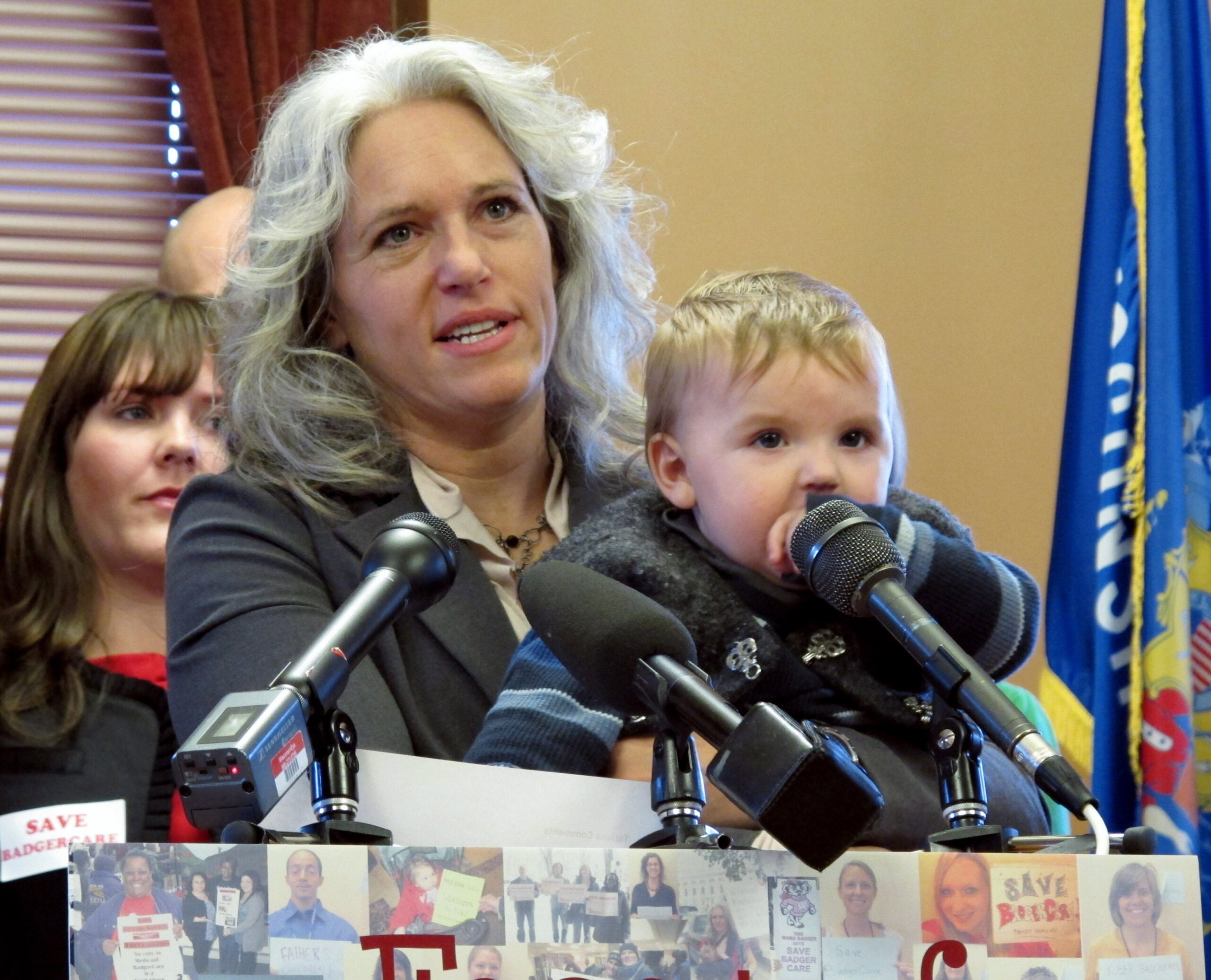A longtime former product designer for the Target Corporation who identifies health care as a major concern of Wisconsin’s 7th Congressional District constituents is seeking to unseat two-term Republican Rep. Tom Tiffany in November.
Democrat Kyle Kilbourn of Woodboro grew up in a small town of Des Lacs, North Dakota. He attended the University of Minnesota, where he met his now-husband, Chris. He continued his studies at the University of Southern Denmark, earning a doctorate in product design and innovation.
Kilbourn spoke with WPR’s Robin Washington on “Morning Edition.”
News with a little more humanity
WPR’s “Wisconsin Today” newsletter keeps you connected to the state you love without feeling overwhelmed. No paywall. No agenda. No corporate filter.
This interview has been edited for brevity and clarity.
Robin Washington: What is your top priority in Congress for representing the 7th district?
Kyle Kilbourn: What I’m hearing across the district is health care access is vanishing across our rural areas and it’s unacceptable. The government has a duty to make sure that we are expanding our rural health care centers and to assure that every community has access to affordable and quality care.
I hear from too many families that they’re facing impossible choices between getting the medical care they need or going into debt. That’s not how it should be.
When prescription drug prices could have been capped, our representative voted against that. He also opposed the PACT Act, which expands health care for veterans exposed to toxic substances. Our district deserves better, and I will fight for lower prescription drug costs and more health care access.
RW: Congressman Tiffany has proposed changing the Apostle Islands area from a national lakeshore to a national park, a move that has sparked divisions along party lines, even though both sides say they love the area and it shouldn’t be a partisan issue. Tiffany has said the change could be put in motion before the end of his term. If so, and if you’re elected, would you seek to reverse it?
KK: It boils down to community input and unfortunately this bill had very little community input, even today. The city and the county have come out against this proposal and it’s important to know what the community needs.
What’s missing in this bill is protections for tribal rights. What’s also missing is any funding for improvements that would have to be made at the national park. It’s not that I’m against it. It’s that it needs to be done in the right way and this is not the right way to do it, springing this on the community without their input.
RW: If it is implemented before you take office, would you seek to reverse it?
KK: I don’t think I would reverse it. If it’s already a national park and that won’t change as part of that bill.
There are parts of that bill which makes a preserve. There may be that part of the bill that we would want to strengthen because preserve offers less protections than a national park. So making sure we are protecting the areas of the islands that still need protections, so it might be in addition to the bill — making sure that those protections are in place for Sand Island.
RW: The proposed billion-dollar Nemadji Trail Energy Center natural gas plant for Superior has also divided the region, including within the labor constituency normally allied with Democrats. For now, the city of Superior has stalled the project, citing concerns about the environment and claiming that it will ultimately be paid for by local residents. Are you in favor of the plant or against it? And how do you answer competing positions within your own party?
KK: It’s a very complex issue. I’ve worked many years in the corporate sector and helped develop the first sustainability strategy that was widely adopted by Target. For that project, what we learned and understood was you can’t just make choices about one or the other.
While the area is in desperate need of jobs, we also have to realize what impact this will have on the local environment, on the planet as well. Does this help the cooperative — Dairyland Cooperative — that is looking to bring this product to market; does this meet their 2030 goals? It does not. Does this meet the state of Wisconsin’s 2040 goals of being carbon neutral? It does not. So that’s a tough choice to put a community in and say, “Well, this isn’t meeting anyone’s goals, but it brings some jobs to the area.” I think we need to demand better from projects like this.
RW: Likewise, Enbridge’s proposed Line 5 pipeline has also divided the region. Do you see any realistic compromise there, or is it simply build it or not?
KK: We have to take into account the land that it’s going across; ensuring that property owners’ rights are respected and tribal rights are respected. There are compromises that can be made on both sides and things can come to market that way. But as proposed now, it doesn’t seem that either side is willing to budge and it seems very unlikely at this moment.
RW: In the spirit of bipartisanship, is there any Republican-backed legislation specifically addressing our region that you could get behind — keeping in mind that we don’t know which party will be in control in the next term?
KK: One of the things that came up recently was the Bipartisan Immigration Bill that was written majorly by a Republican senator. I think that had support on both sides of the aisle until someone decided to be against it. I think we need to have immigration reform, and that’s something that I am willing to stand behind. We need to have a balanced approach that secures our border while fixing the broken immigration system. Part of that is stronger border security, but it also needs to address the needs of our industries, especially in rural Wisconsin where we have a lot of farming and we use immigrant labor. Making sure that we’re balancing those needs is definitely important.
Wisconsin voters head to the polls on Nov. 5. For all of WPR’s campaign coverage, including presidential, congressional and legislative races, visit WPR’s Election 2024 page.

